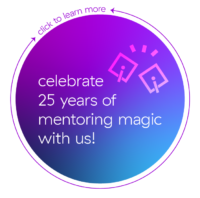Certain dates are etched in the collective memory of a city. In Chicago, my generation of thirty- and forty-somethings remembers November 25, 1987, the day Harold Washington, the city’s first black mayor, unexpectedly died in office. We remember June 12, 1991, when Michael Jordan’s transcendent brilliance was rewarded with his first of six NBA titles. And none of us will forget where we were and how we felt last Friday, October 5, 2018.
Four years after Laquan McDonald was murdered, three years after the police dashcam video showing his murder was belatedly brought to light, CPD Officer Jason Van Dyke was convicted of second-degree murder and 16 counts of aggravated battery -- one for every shot he fired into the seventeen-year-old.
As the father of a five-year-old black boy, one of the first emotions that washed over me after hearing the verdict was relief; I could give my son the “good” answer later that day when he asked me why daddy was crying. However, like so many Chicagoans, I felt the verdict was a time for reflection, not celebration. Police brutality, institutional racism, and the fear so many of our black and brown neighbors live with each day cannot be swept away by a single verdict. And no matter the outcome of the trial, it was not going to bring Laquan back to his mother, Tina.
Against this sobering backdrop, iMentor pairs are doing their own reflecting and talking. Just like adults have complex reactions and different views on Laquan’s killing and this trial, so do iMentor students. Some of our students may have known Laquan or his family, some may have been victims of police misconduct, and some may have relatives and friends who are police officers. Some may not have paid much attention to the trial.
Regardless of their individual opinion, we know that opening up space for pairs to have tough, courageous conversations only strengthens relationships and helps pairs grow. Because of that, we encourage mentors to check in and—depending on the response—start a conversation with mentees about the trial, its verdict, and what it means to them. We know having these kinds of tough, courageous conversations can be hard, so we are sharing the following tips and resources with our mentors.
How to open the conversation:
1. You can start with a question, like “I have been wondering, have there been conversations at your school about the Jason Van Dyke trial?” or “I have been reading about the trial of the police officer that killed Laquan McDonald. Have you seen any news about that? What did you see or hear?”
2. You can start with a personal story, like “I may have told you that <the personal reference point that makes this topic feel important to you>. I am feeling <emotions you are feeling about the issue> and wanted to know if you have been hearing or thinking about this issue, too.”
However you decide to enter the conversation, here are some things to keep in mind:
1. Examine your own mental models in advance. As you enter the conversation, think carefully about your own personal beliefs on this topic and the inputs that formed that belief. Focus your self-awareness on when, how, and from whom you have come to believe as you do about the role of race and the historical and current racial relations in the U.S. Consider how your race, ethnicity, citizenship status, family history, socio-economic status, political affiliation, or other personal factors contribute to your views. How might these be similar or different from your mentee. Move into your most empathetic place as you are hearing from or reading your mentee’s thoughts: this is a great opportunity to “walk a mile in her/his shoes”, even if it’s in how your mentee thinks about these topics and the influences on his/her worldview.
2. Honor student voice. This is an opportunity to listen to understand, not to respond. Even if your mentee has ideas you feel are outlandish or not well-founded, actively listen. Thank your student for sharing his/her thoughts. Repeat back, “so it sounds like you have been feeling…seeing…”. Demonstrate engagement in and respect for the authenticity of their voice (and use #3 below to correct for “facts” as needed).
3. Learn together. If your mentee has information from news or social media that you are not sure is correct, this is a great chance to say, “How can we learn more about this topic together?” and then discuss credible or unbiased news sources, as well as the difference between news reporting and advocacy. Maybe look up some stories or social media posts together to discuss or take other action together that puts you on equal footing as learners, while introducing more trusted sources of information for you both.
If you want to read more, Facing History has some strong resources for teachers that may be helpful to you in thinking about this conversation with your mentee.
These kinds of courageous, necessary conversations between iMentor pairs happen every day. Like the verdict in Laquan’s murder doesn’t erase our city’s many complex challenges and shortcomings, these conversations are not a magic wand. But as this verdict has the potential to be a turning point for Chicago, these conversations can deepen and even transform relationships, giving students a deeper well of knowledge, support, and love to draw upon as they strive to reach their biggest dreams.
Jason Friedman
Executive Director, iMentor Chicago
